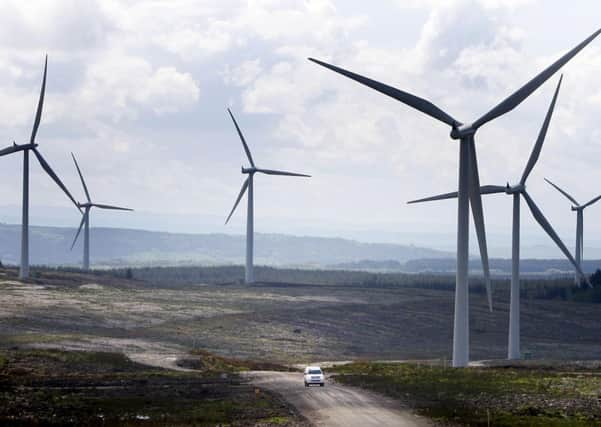Politicians exploit fears of climatic armageddon


Our political masters exploit suggestions of climatic armageddon and have signed agreements which commit this nation to replacing economically viable fossil fuels with untried and untested “renewable” sources. Their chosen method to discourage our dependency on coal, oil and gas is by taxing these commodities until their cost exceeds that of the “green” alternative.
What they refuse to acknowledge is that carbon emissions are also determined by population density. More people living on this island, heating their homes, driving their cars and demanding services, equals ever higher carbon emissions. This should be obvious even for those with only a rudimentary grasp of simple arithmetic, yet our politicians have signed other agreements, which allow more migrants and immigrants to swell the population.
Advertisement
Hide AdAdvertisement
Hide AdBeing endowed with such blatant hypocrisy, it is inevitable same political elite will continue to impose ever more fatuous policies. When formulating such, it is clear they carefully assess the likely volume of dissent before enacting their plans. This has been the case with onshore wind farms, where, to eliminate any possibility of a successful legal challenge by aggrieved residents, planning regulations have been amended to favour the developer. Such an imposition does not only generate electricity, it generates ill will and windmills are perceived by many as an eyesore with no redeeming features.
Others question the efficiency of the technology but it should be remembered that early petrol engines are hardly comparable with those we use today. Windmills have the potential to provide an alternative source of power; however, there are different ways to approach such controversial changes in our environment. Here in the North-West we have many potential wind farm sites and they have not escaped the notice of either Government or developers. If our region is to become a center for wind-generated energy and we are to have our most picturesque hill tops festooned with windmills, surely we should be compensated with cheaper electricity.
When, in the past, wind farms have been proposed, BNP councillors suggested free or heavily subsidized electricity to those few properties most adversely affected. This would certainly offset the loss of amenity and monitory value of these properties and because there were so few of them, the cost to the generating companies would be negligible. The principle was reasonably well received by property owners who recognized the inevitability of the situation and saw it as acceptable compensation. Unfortunately, the establishment refused to countenance such a concession citing it was not allowed under current legislation.
With the prognosis suggesting a proliferation of wind farms in future perhaps now is the time to lobby for a change in that legislation. It is, however, a sad fact our political masters would rather allow resentment to fester than offer incentives. They choose instead to rule in the manner of feudal lords riding roughshod over their vassal kingdom and then have the gall to present it as democracy.
John Cave
Burnley